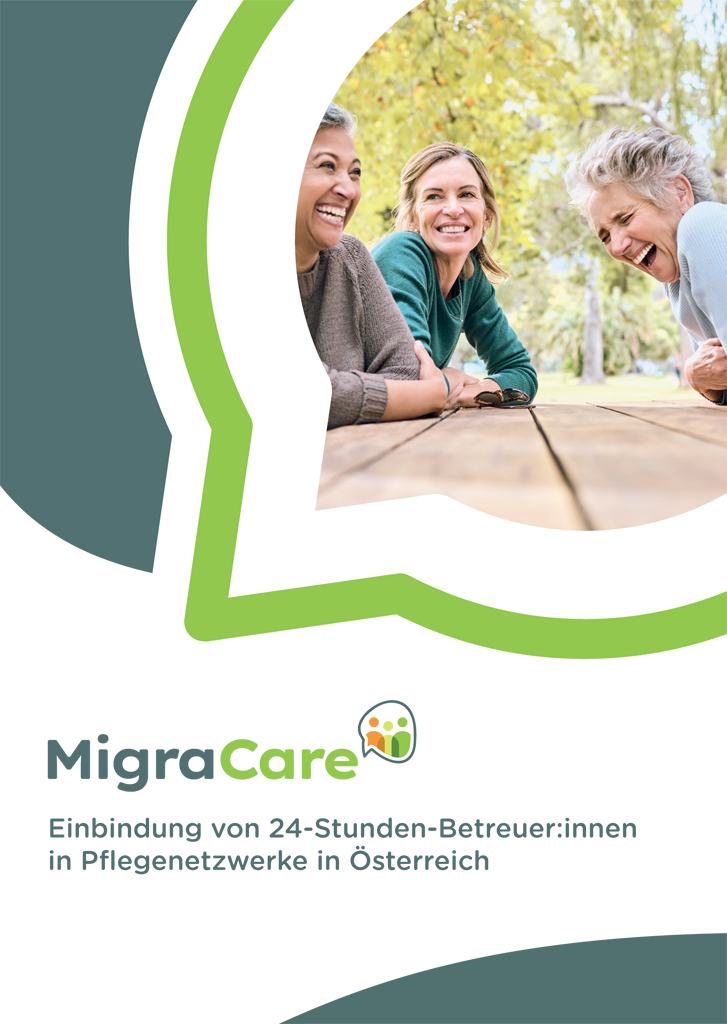Migra Care
Integration of 24-hour caregivers into care networks in Austria
What is the project about?
Currently, many elderly, frail people living at home are cared for by personal carers – so-called 24-hour carers. The majority of these carers are migrant women (98%) from Eastern European countries such as Slovakia, Romania and Hungary. In this transdisciplinary project, partners from the research community are working together with stakeholders from care work to further develop the innovative concept of caregiver cafés – a space created through volunteer engagement so that 24-hour caregivers can exchange with each other.
In order to better integrate 24-hour caregivers into existing care networks, the project aims to network caregiver cafés throughout Austria, to offer a further education programme within the framework of these cafés, and to provide training for community nurses and social counselling centres, in which they learn what 24-hour caregivers do and what prerequisites they need for their work as live-in caregivers. The practice-oriented project is accompanied and evaluated by social scientists. The project is in line with the concept of the Caring Community, which aims to strengthen the involvement and networking of different actors in care work in a sustainable and bottom-up way in order to make vulnerable groups more resilient.
What is the aim of the project?
The aim of MigraCare is to strengthen the resilience of 24-hour caregivers and their social recognition through networking (in caregiver cafés) and the development of a training programme in Austria/online. Another goal is to link 24-hour caregivers with community nurses in order to promote sustainable cooperation and to create an interface with the existing care network in Austria.
Who participates in the project?
24-hour caregivers, researchers, non-profit organisations, social researchers, civil society organisations.
How are the participants involved in the project?
The project uses qualitative methods of empirical social research and is fundamentally based on the participation of caregivers and stakeholders in all steps of the project – from project proposal writing to evaluation.

Time frame: 02/2023 – 12/2024
Project management:
Silvia Wojczewski
In cooperation with:
Zentrum für Public Health MED Uni Wien
BetreuerinnenCafé Leonstein

